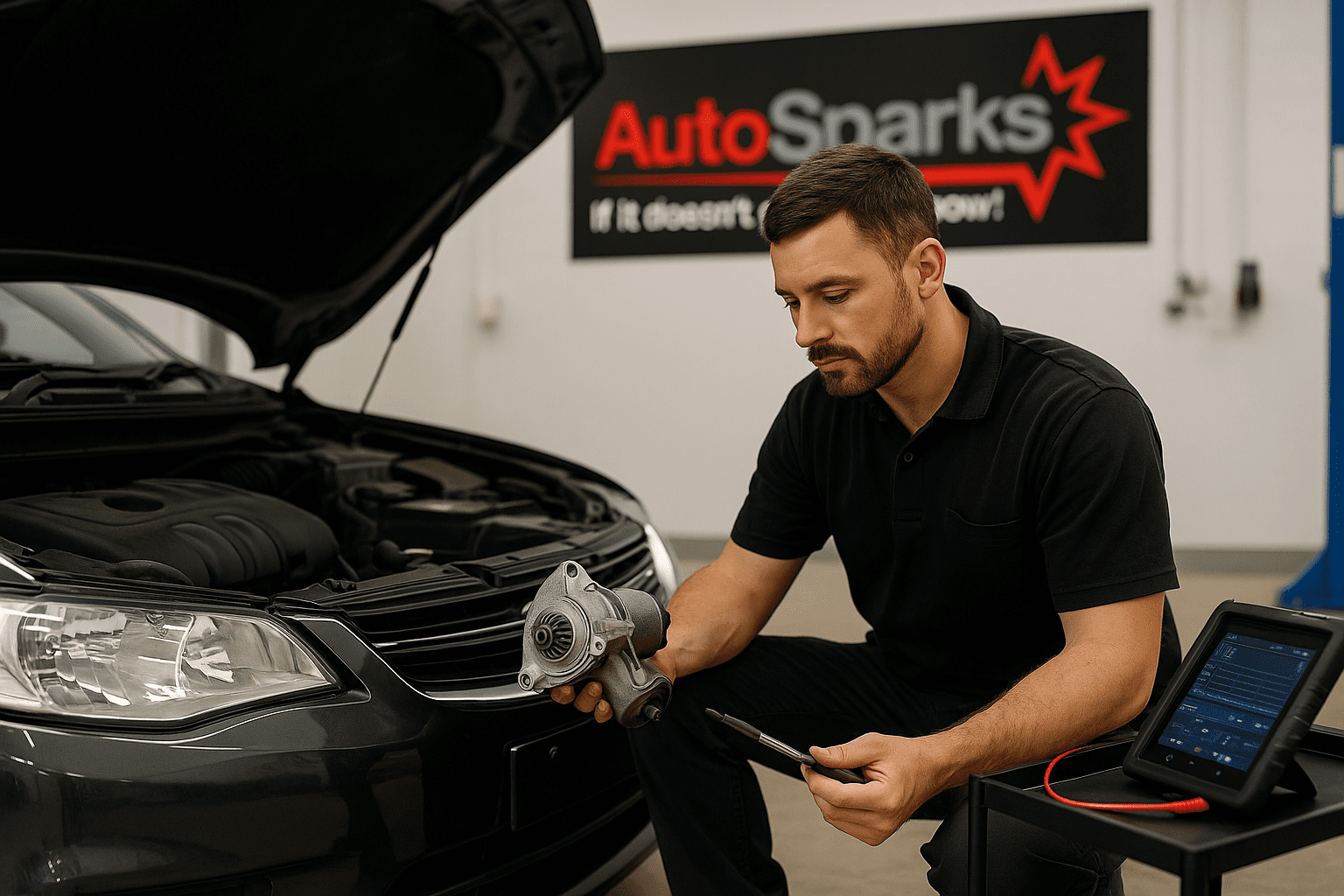What electrical problems commonly affect starter motors, and how are they repaired in Ashburton?
That dreaded clicking sound, or the engine turning over really slowly (or not at all) – these are classic signs that your starter motor might be having trouble. The starter motor is a powerful electric motor whose only job is to crank the engine over so it can start. Because it draws a lot of current, it’s prone to certain electrical issues.
Here are some common electrical problems that affect starter motors:
1. Solenoid Failure: The solenoid is like a powerful switch mounted on the starter motor. When you turn the key, it does two things: it pushes the starter gear forward to engage with the engine’s flywheel, and it completes the high-current circuit to make the motor spin. If the solenoid fails, you might hear a single loud click, but the motor won’t spin. Sometimes the contacts inside wear out.
2. Worn Motor Brushes: Inside the electric motor are carbon brushes that transfer power to the rotating part (armature). These brushes wear down over time. When they get too short, they make poor contact, leading to weak cranking, intermittent starting, or complete failure.
3. Internal Shorts or Open Circuits: The windings inside the motor or solenoid can develop short circuits (where electricity takes an unintended path) or open circuits (a break in the wire). This can cause the motor to draw excessive current (potentially blowing fuses or draining the battery quickly) or stop working altogether.
4. Wiring and Connection Issues: The starter motor needs thick cables to handle the high current draw from the battery. Loose, corroded, or damaged connections at the battery, the solenoid, or the motor itself can prevent enough power from reaching the starter, causing slow cranking or clicking sounds.
5. Faulty Ignition Switch or Relay: Sometimes the problem isn’t the starter motor itself, but the circuit that tells it to work. A worn ignition switch or a faulty starter relay might not send the signal to the solenoid correctly.
How Are Starter Motor Problems Repaired in Ashburton?
Diagnosing starter motor issues properly is key. Just because the car won’t start doesn’t automatically mean the starter is dead. An auto electrician will typically:
* Check the Battery: First, ensure the battery is fully charged and healthy, as a weak battery can mimic starter problems.
* Inspect Connections: Check all the main power and earth cables between the battery and the starter for tightness and corrosion.
* Test the Solenoid Signal: Verify that the solenoid is receiving the signal from the ignition switch when the key is turned to ‘start’.
* Test Voltage Drop: Measure the voltage at the starter motor while cranking to see if excessive resistance in the cables is preventing full power delivery.
* Bench Test (if necessary): Sometimes the starter motor needs to be removed from the vehicle and tested on a dedicated rig to confirm its operation.
Based on the diagnosis, the repair might involve:
* Cleaning or tightening connections.
* Repairing wiring.
* Replacing the starter solenoid (sometimes possible separately).
* Replacing the entire starter motor assembly (often the most practical solution for internal faults).
At AutoSparks in Ashburton, we can accurately diagnose starting system problems. Whether it’s a simple connection issue or requires a replacement starter motor, we’ll find the fault and get your vehicle starting reliably again.

